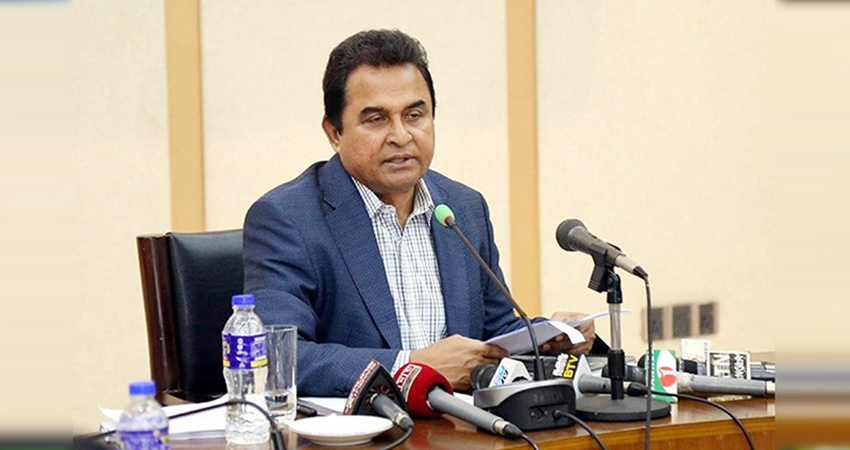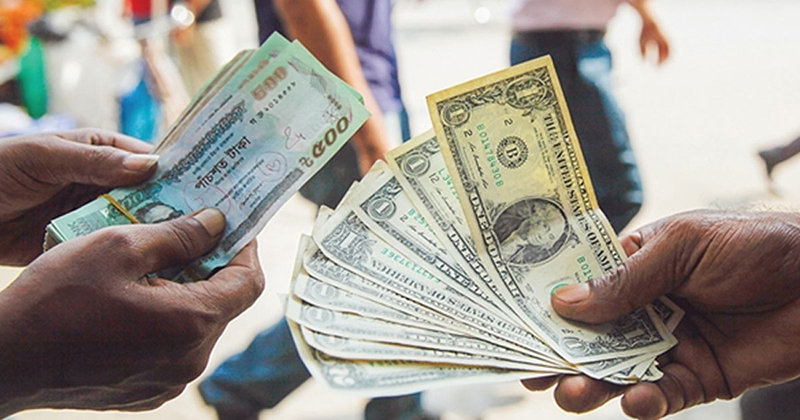Bangladesh has asked the International Monetary Fund (IMF) to start negotiations for a loan, the finance minister told a local leading newspaper, while adding that the economy was no way in trouble.
Finance Minister AHM Mustafa Kamal said he did not specify any amount in a letter he sent to the IMF on Sunday.
Two sources with knowledge of the matter, who declined to be identified as only the finance minister was authorized to talk to the media, said the government had not yet decided how much money it wanted.
The IMF was requested to start a formal negotiation to obtain loans for balance of payments and budget assistance, Kamal said in the report published on Wednesday.
"When and how much loan will be available will depend on them. As far as our current macroeconomic situation is concerned, we are in no way in trouble."
Kamal did not respond to requests for comment from Reuters.
A senior IMF official told Reuters on Tuesday that Bangladesh had asked it to start talks on a new loan under the global creditor's Resilience and Sustainability Trust.
Such funds are capped at 150% of a country's quota or, in Bangladesh's case, the maximum of $1 billion.
A leading English news daily reported on Tuesday that the country wanted $4.5 billion from the IMF.
The country's $416 billion economy has been one of the fastest-growing in the world for years, but rising energy and food prices because of the Russia-Ukraine war has inflated its import bill and the current account deficit.
Bangladesh's economic mainstay is its export-oriented garments industry, which could suffer if sales fall in its main markets in Europe and the United States because of a slowdown in the global economy.
After garments, remittances are the second highest source of foreign currency for Bangladesh.
The South Asian country's foreign exchange reserves fell to $39.67 billion as of July 20 - sufficient for 5.3 months worth of imports - from $45.5 billion a year earlier.
Its July to May current account deficit was $17.2 billion, compared with a deficit of $2.78 billion in the year-earlier period, as its trade deficit widened and remittances fell.
Sri Lanka and Pakistan are the other two South Asian countries to have sought IMF support this year.
IMF says loan under fund's resilience trust
Bangladesh asked the International Monetary Fund to start talks on a new loan under the creditor's Resilience and Sustainability Trust (RST), which is designed to help countries ensure sustainable growth, said Krishna Srinivasan, director of the IMF's Asia and Pacific Department, in a Tuesday interview.
Bangladesh's $416 billion economy is the first in Asia to put such a request forward to the Washington-based lender as it seeks to ramp up its attention on how to mitigate the impact of climate change.
"The RST comes also with an (upper credit tranche) program, so it's a joint initiative. The amounts will have to be discussed subsequently," Srinivasan told Reuters.
This means that Bangladesh will need a regular IMF-supported program such as a stand-by agreement or an extended fund facility to be able to get this new type of financing.
"This facility is aimed at addressing transformational changes in countries, notably climate change and pandemic preparedness," he said.
"One would hope that other countries would also take advantage of this instrument."
RST funds are capped at 150% of a country's quota or, in Bangladesh's case, the maximum of $1 billion.
The IMF expects to begin lending from the RST in October.
Low-income and vulnerable middle-income countries can apply to get the financing, which has channeled special drawing rights from countries with strong external positions, according to the fund's website.
The loans will have a 20-year maturity and a 10-1/2-year grace period.
"We would hope that it is one among more to come down the road," Srinivasan said.



















